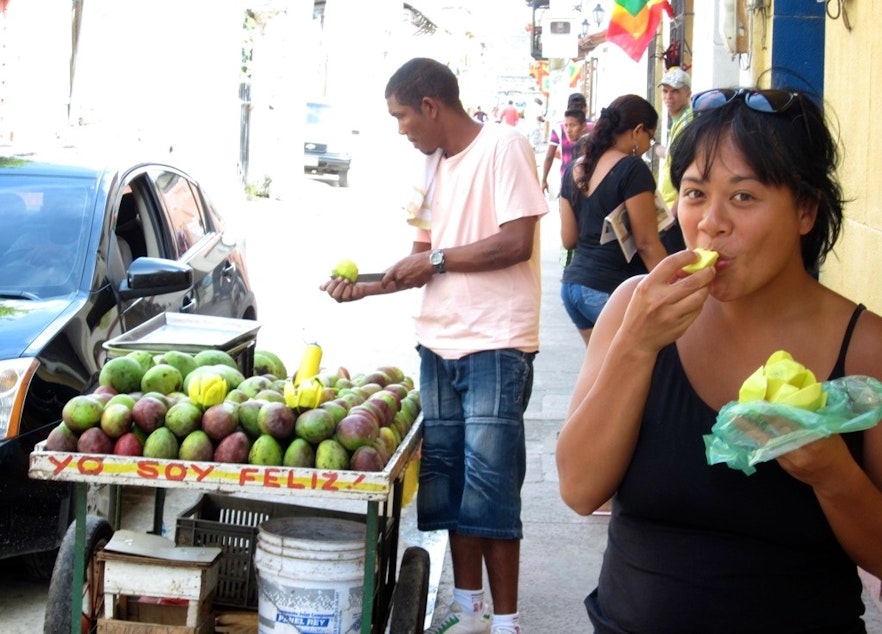Is it a problem when white chefs cook other people’s food?

When you go to a restaurant that touts itself as Korean, French, Mexican or Italian—it’s hard to know exactly what that means. And you might accidentally be stepping into murky food politics by going to one. How? If the chef is white and making money off the cuisine of people of color.
Dan Pashman explored this issue on his podcast The Sporkful from WNYC Studios. Pashman spoke to scholars, cookbook authors and chefs to explore the problems and possibilities of cooking food from a culture that isn’t your own.
One of the chefs he spoke to was Rick Bayless. He owns two Mexican restaurants in Chicago, and you can buy his salsas at the grocery store. He’s widely regarded as the face of Mexican food in the U.S., despite being a white man from Oklahoma.
Pashman interviewed Bayless about how he developed a passion and deep knowledge of Mexican food that goes back decades. He also asked him about race and how he responds when people feel uncomfortable with him being a white chef cooking Mexican food.
“I know that there have been a number of people out there that have criticized me only, only because of my race. Because I’m white, I can’t do anything with Mexican food. OK so, you have to stop and say, is that just plain racism then?” Bayless said.
Pashman pushed him further and asked him if being white has helped him in his career.
“It wasn’t just because I was white that they would come to my restaurant, because restaurants fail at alarming rates. And I think probably all of our listeners know that. And to be a growing restaurant for 30 years says something that has to do a lot I think with the flavor of the food on the plate.”
Many food writers condemned Bayless’s comments and thought that they halted an important conversation on food and race.
One of those writers was Angela Garbes, a food writer for The Stranger.
“Think of all the other talented Mexican chefs that are out there who came to the United States maybe as immigrants. Cooking was the one way that they could make an entrance into the American economy. But they don’t have the access to resources. To loans, to marketing, to audiences,” she told KUOW’s Bill Radke.
Radke asked her what she thinks chefs in this position should do with the fact that they are white and have a passion for another culture’s cuisine.
“I don’t care what you cook. Chefs are creative, curious people,” she said.
She noted an example of a white chef who cooks food from another culture: Jerry Traunfeld of Poppy and Lionhead. Lionhead is a Szechuan restaurant. She pointed out the steps he’s taken to acknowledge his more distant relationship to Chinese cuisine.
“He was very quick to say was, ‘I’m not an expert, I like cooking this food and I’m learning all the time.’ And he was very quick to praise and give credit to his sous chef and his chef de cuisine, Kenny Lee and Sean Lin, and he said, ‘they have taught me things about Chinese technique that I would have never learned in a book that is really valuable,’” Garbes added.
For Garbes, the key issue is to be able to acknowledge privilege.
“That’s really where I think Rick Bayless failed. To not even be able to acknowledge it, there’s really no conversation that can be had,” she said.
Editor’s note: The Sporkful is available wherever you download podcasts. For more on this topic, hear from Seattle chef Edouardo Jordan reflecting on cooking other people's food as a way to introduce his own.

